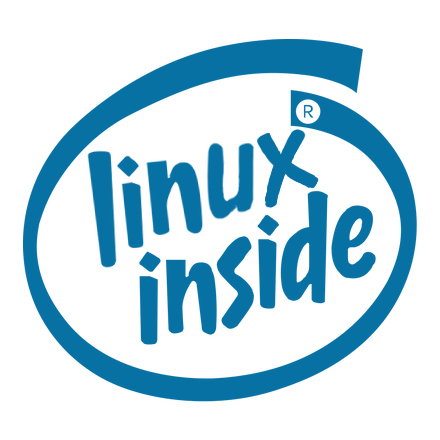With support ending for Windows 10, the most popular desktop operating system in the world currently, possibly 240 million pcs may be sent to the landfill. This is mostly due to Windows 11’s exorbitant requirements. This will most likely result in many pcs being immediately outdated, and prone to viruses. GNU/Linux may be these computers’ only secure hope, what do you think?
…What does the writer think support end means? Microsoft bricks the PC as soon as the support period ends?
They’re going to just keep using Windows 10, security be damned. Probably a good number of users who weren’t keeping their PC up to date even when Microsoft was forcing updates on them.
I still see XP pcs in the wild sometimes
Lots of hospitals seem to be running XP
I work in the behavioral health field as an IT security admin and network with hospitals/health clinics all all the time. The amount of them using XP and 7 in some capacity should scare everyone. The other security admins know it’s an issue, but they just laugh it off.
I tell them if I were an immoral man, their company would be compromised just based off of that information.
Yeah I work for an emergency management SaaS company and we block outdated OSs and browsers and it’s wild how we will occasionally get pushback from potential new customers who are surprised we don’t support their outdated IT infrastructure due to the security risk
“what do you mean you don’t service tin cans on a string?!”
Windows XP is basically firmware at this point, and has been for over a decade.
Lots of proprietary hardware that works perfectly, will not work on newer versions of Windows due to lack of drivers.
I see it constantly in factory situations with scales, scanners and robot controllers, it would only be worse for million dollar x-ray machines.
This. A lot of our lab’s instruments are proprietary garbage. I wish the people buy these extremely expensive instruments would actually research if there’s open source alternatives or help pressure the government’s into forcing the code to be open. A lot of (public) spending for research is due to this sort of bs “instruments which only works with its own proprietary software” btw. The other good portion is eaten up by scumbags like Elsevier and other publishers.
As long as that machine is disconnected from the internet it’s OK but as soon as you connect it you are cooked.
It’s been getting absolutely worse and worse with hardware as they shovel crap at you and then also expect you to buy subscriptions to make it usable. Keysight/agilent/ whoever they are had been really annoying about this.
Hell I’ve spotted some old systems still running a Telex exchange and Windows 3.1
Yep. Came across a computer recently still running Windows 2000 on it. Fan sounded like a truck with a bad lifter tick 😂
We have a piece of test equipment that runs windows 2000. It has to be quarantined on its own subnet isolated from the rest of the network.
deleted by creator
Looking forward to more, bigger ddos attacks with so many unsecured computers sitting around… :(
A ton of people can barely open a PDF and this sub thinks those people can change to a completely different operating system.
My 80 year old dad has been using a XUbuntu for years and never even noticed. The only reason he knows he’s using Linux at all is because he saw a news story about Windows tracking and asked about it. He was quite happy not to be affected.
Honestly Linux mint can be more user friendly. The problem is that no one else knows how to help people using it
Theoretically, when it’s up and running. How do you intend to get to that state, though? One has to install it first. And I think that alone is a massive filter.
inb4 someone says:
I did it, and I found it extremely straightforward.
I’m sure you did, Mr. “I hate how much Reddit is pandering to the braindead to the point that I joined an experimental social media platform”, I’m sure you did. Clearly, you are a qualitative sample of people who use Windows computers.
Sarcasm aside, look at how railroaded and coddling the Windows 10 installer is. I am certain a large plurality of Windows users’ initiative would completely evaporate having to navigate that. And now we want to throw a Linux installation at them?
Factor on top how the vast majority of computer users in all forms that computers take simply take for granted that the OS the computer comes with is a part of the computer. Normal people don’t upgrade OSes unless the OS itself railroads them into it (which Win10 already does aggressively whenable), or they buy a new PC that happens to come with it pre-installed. The knowledge required to negotiate an OS wipe and reinstall is not something most people possess, and I expect presenting that knowledge to them on a silver platter is something they’d hastily recoil from.
We’re in a catch-22 here. Even if all the pieces for the fabled Linux Desktop are arguably here, actually getting it into the hands of those who would benefit from it most remains prohibitive.
This is also ignoring the elephant in the room: A massive swath of these Windows PCs (Maybe even most of them? I have no backing figures, just a hunch.) are not personal computers, but office PCs that belong to a company fleet. There’s a reason Windows utterly dominates the office–Windows rules the IT sphere, at least where personal devices given to employees are concerned. Active Directory? Group Policy? Come on, guys. None of the companies who depend on these management tools are pivoting to Linux anytime soon, and you know it. And if their cheap, bulk order desk PCs don’t support Windows 11, they are absolutely getting landfilled.
The only effective mitigation I could think of would be to start a charity that takes obselesced office PCs, refurbishes them to Linux, and provides them at low or no cost to those who need a low cost or free PC. It would get Linux into more hands, but it would also strengthen a stigma that Linux is nothing more than the poor man’s OS. The Dr Thunder to Window’s Mountain Dew.
Edit: My bad. I did the thing where I read like the first two sentences and didn’t read the rest. Reading the rest of the reply basically acknowledged my refute.
The majority of this waste is coming from businesses that now need to upgrade. That’s why there are IT departments to figure it out for the tech illiterate. As long as they can open their email client, a text editor and excel, you’ve overcome 90% of what a business needs for their computers.
You are right, Grandma Jones with her 800x600 resolution screen, 10 downloaded tool bars and Microsoft Edge ain’t going to get it, but Grandma Jones is still using XP, a CRT and a Gateway Computer she bought back in 2006
Nah, 'twas a good rant nonetheless ;)
Honestly people who can’t open a PDF and refuse to learn shouldn’t use a computer in the first place.
But, assuming most people aren’t complete morons and can actually do stuff if they decide to sit down, Google how to do it and actually do it instead of declaring “I am stupid” and not even try, then even just telling or better yet showing people there’s an alternative to throwing your perfectly functioning laptop and buying an expensive new one will go a long way to get new users and save some e-waste.
Of course, installing an OS isn’t easy, for linux specifically the hard part is entering the BIOS to disable secure boot and then go into the boot menu to select the USB. After that it’s a lot easier. Of course they can also be directed towards Linux computers, like system76’s, or Tuxedo’s or Laptops with Linux’s if necessary.
Naturally to get Linux to dominate the desktop we need the EU to say “know what fuck you, your PC can’t come with a preinstalled paid OS” paired with people learning Linux is an option when buying the PC and seeing that it is free vs what like 135€?
But, assuming most people aren’t complete morons and can actually do stuff if they decide to sit down, Google how to do it and actually do it instead of declaring “I am stupid” and not even try
Extremely charitable assumption, I’d say.
I do think most people do in fact possess the ability to follow instructions and succeed at installing Linux from USB. But it all falls apart at the key word “decide”. Very few people choose to devote the low, but nonzero, effort required to pull it off.
for linux specifically the hard part is entering the BIOS to disable secure boot and then go into the boot menu to select the USB
I would say, for the demographic I’m thinking of, the hardest part is actually getting the installation media in the first place. Not because it’s challenging to do, but just getting over the mental barrier of this (to them) extremely unorthodox method of installing software.
Like, first you have to find the thing and download it. Which, fine, that’s typical so far But the thing you download isn’t some .exe you run. No, you need to put it on a flash drive. So you need one of those lying around, either empty or with nothing important on it. But you don’t just copy the installl file onto it the ““normal”” way, nooo… you also have to separately download some strange utility that burns it onto the flash drive in some special way or else it won’t work. Only then do you have to tickle the BIOS.
I understand if you or anyone else reading rolls their eyes at that description because these steps are so boneheadedly simple. And I agree, they are. But it’s not so much a question of whether it’s hard to do, it’s a question of whether it feels safe and natural to do. Which, to you and me, it is. But to the kind of person who, as you say, shouldn’t even be using a computer in the first place (but they must anyhow, because trying to live in our modern information age society without one closes too many doors), it’s an uncomfortable, dark ritual.
Get them to flash it with Ventoy, then they can copy and paste the ISO. Bit easier for dummies and let’s them put more .iso files in it without the “but why can’t I do more than one”.
The BIOS is a lot scarier to noobs. You have to press a button very fast, go into a scary menu that looks different than anything else and full of weird options, to disable something that has secure in its name, and then something about boots to turn on the PC from the USB? But my computer has no boots!
Now this was made easier by windows which can be told to reboot directly on the BIOS or media drive, but it is still more daunting to newbies than to use a program to flash a USB in my experience.
Of course, that’s why we need to be there for tech illiterate people to teach them how to read, without assuming they’re mentally challenged because they’re not stupid they just lack the willingness to try something that looks scary the first time you do it (like most things in life). If I got my mother, who can barely figure out how to open the file manager on windows, to install Linux Mint and some software in it over a phone call, it’s possible with anyone.
I didn’t disable secure boot when I installed linux, oh no!
Lucky. I had to do it in a few laptops or it wouldn’t even have allowed me to boot from USB
Odd, I never had that issue. I wasn’t aware it could happen.
I see how that could be confusing for novice users.
“
Honestly people who can’t open a PDF and refuse to learn shouldn’t use a computer in the first place
.”
By this logic people that don’t know how to drive vehicles shouldn’t be using transportation in the first place. Right…right?!
It’s an and statement you breedable little shit you can’t just ignore one of the conditions in the statement.
If someone can’t drive a vehicle and doesn’t want to learn he will not, in fact, be allowed to drive.
Many people will simply abandon their desktops and laptops, and strictly use their smartphone.
I recently installed elementary os on a Dell laptop and Fedora on an older super shitty Dell laptop. Honestly I know it was a bit of luck but both installs could’ve hardly gone smoother. The install itself? Easier than windows and absolutely faster. Out of the two computers, assuming patience with learning a new thing, there was barely friction and this could’ve been done by most people with a little gumption.
I told the laptop owners that the touch screen wouldn’t work on the newer one. Just assumed that was a weird hardware software combination that would be very difficult if not impossible to get working. They were ok with that because essentially both computers were slow trash and we were trying to salvage them. Lo and behold though-- the touchscreen worked out the box with literally no effort. It didn’t behave how the owners wanted (like it did on windows), but 15 minutes of googling and a reboot and the touch screen was working exactly as it did on windows. Obviously Linux isn’t for everyone but when 1) it’s gotten this good and 2) the alternative is trashing a computer, it really saddens me to see a long diatribe shitting all over the possibility of salvaging a lot of these computers rather than throwing them away.
this could’ve been done by most people with a little gumption.
My point was not that installing Linux is intrinsically difficult, it’s that people who have “a little gumption” to figure it out are a far rarer breed than you seem to believe.
Also, I wasn’t intending to “shit all over the possibility” of salvaging old PCs. I support that! I think Linux (Mint, specifically) would be a perfect drop-in for most light use Windows users, as it is a stable and friendly solution to common needs. I was just raising the part most people overlook: actually getting it running. Not just the technical challenges, but the mental ones, too. The people who stand to gain the most from a free and stable OS are paradoxically the same people who are the least equipped to find and set it up.
We have a long road ahead of us to normalize the procedures of obtaining and installing a new OS in the public eye. Linux can be as user friendly as you like, but it’s all for nothing to the average Joe if he doesn’t understand how to get it. Or why he should even bother getting it, for that matter.
I’m reading and agreeing, really vibing with what you’re saying. Then you have to go and fumble it on the last line. Come on, man! Every soda afficianado knows Dr Thunder is the poor man’s Dr Pepper
I thought it was intentional like “this is not only cheaper, it’s notably different”
Sorry. Got my wires crossed with Mountain Lightning.
They even got it right with the lack of a period, but still fucked it up so bad 😔
I’m not sure if you’ve trying using the windows installer but it is terrible. Linux mint is much easier to install provided that you can create a USB.
Its still above most peoples ability
I guess by “Windows installer” I actually meant the setup wizard that runs the first time you boot an OEM machine from the factory. The thing 99% of Windows users actually see. Not sure if that’s significantly different.
And if you want to claim even that is terrible, I really have to question by what metric you’re measuring. Is it because it doesn’t give you the options you want, like creating an offline user account, or because it’s full of bloat screens for products like OneDrive? Sure, I guess. But I’d say having these criticisms are very specifically the kind of things that make you an outlier compared to the average person I’m talking about. These are things normal people don’t bat an eye at. Giving them more control just intimidates them.
And yeah, I’m sure you agree, “provided [they] can create a USB” is a huge ask for a lot of people. Child’s play for us, but weird and scary black magic to most. Guides can and do make it crystal clear what to do, but as long as it feels spooky to download and run the magic programs, no one will feel comfortable doing it.
My metric is helping loved ones try to navigate it. (Spoiler: they can’t)
On Linux mint the setup is very smooth. There are things you could complain about on linux but the initial setup isn’t one of them.
the setup process for the first run of a new windows machine is called the out of box experience. its truely awful in the way it railroads you but a setup process is a lot more approachable than an installer.
The way I see it is 240 million computers have two different courses. One is to just drop the hardware, the other is to update the software. What is granted is that, if you decide to update the software, you will have to research how to do it. You may end up just buying new hardware, or hiring someone to do the job, but there’s a chance to just go for it.
If people go for upgrading their OS for themselves, then they have to research how to do it, and when they do it, they will probably find out that some thing called Linux could fit their needs. If Linux enthusiasts don’t say shit, they will install Windows for sure, otherwise, maybe they will install Linux. I’m not saying this is the year of the Linux desktop and/or this is a huge opportunity to convert PCs to Linux.
It’s still different from what most people are used to. Thee would be a learning curve. And swapping an operating is no easy task for most, either.
Pretty much this. Linux users often forget that, when it comes to specifically operating systems, the vast, vast majority of people are used to what they know, and literally instinctively reject change of any kind.
Most people do not even know what an operating system /is/.
Any one who has ever worked in IT knows this, that the vast, vast majority of computer users are laughably technically incompetent, to the point that they usually get angry when you try to explain basic foundational concepts to them.
Then add on top of that decades of marketing that conditions most of the small minority of people who bother to attempt to learn anything about software and hardware into basically believing slogans, tag lines, and going gaga for tech that has some acronym or cute name, which they understand nothing about beyond the most surface level description.
Summing up, while it is possible to convince a person to switch to a new OS, it is maddeningly difficult at best nearly all the time. People basically demand a perfect product, even though they cannot even come close to beginning to describe what its features would be, and will instinctively assume they know more than actual tech experts all the time.
That being said, if you could run a business of basically buying or acquiring used laptops for cheap, refurbishing them with a stable linux OS, and then reselling them, you might be able to have a successful business, but the problem is that flashing OSs all day long is extremely, mind destroyingly boring and unfulfilling.
We’re gonna pick them up secondhand
Damned right we are!
If you are so bad at using a computer you can’t open a PDF, then you won’t notice the difference between windows and linux
But a ton of people can open a PDF and will be able to select an USB stick from menu and click next, next, next… It’s not completely different, you still use a mouse, a keyboard, you click on things, you get some feedback from it… When a new kind of mobile app arrive, I can see someone using no more than 5 apps in life having problems, but this doesn’t mean only them exists, we do not talk about switching everyone here. People change houses, how are they figuring out where is the toilet if doors have different color and are in different positions?
Also a reason why any software like Microsoft Windows or Office should be banned from public education, especially primary schools.
What a dreamer
deleted by creator
Good point XP held on forever
The stenographer for our local zoning & planning board still uses a XP netbook. Couldn’t believe my eyes when I first saw it
Could be some software that is no longer supported.
Good point. What about hardware drivers? Do the OEMs use OS support deprecation, as an excuse to bail on shit? Or are driver updates irrelevant to a dead OS bc it’s in stasis?
My though was their preferred stenography keyboard was made by a company that is now defunct, ergo no updates. Possibly could be overcome with techy means, but I’m guessing the stenographer doesn’t have those.
I mean stopping Windows updates is really more a win than a loss half the time. They’ve forcefully installed so much of the shitware in Windows 10 updates that makes Windows 11 awful. It took me an hour to strip all the bullshit off of my partner’s Windows 10 that he left to auto-update.
deleted by creator
It’s actually astonishing to me how much better Linux deals with updates compared to macOS and Windows. “Oh, updates are installed, and you just need to restart whatever I updated if it’s currently running.”
Sometimes it does have its moments though, like when it updates some core package and changes its config in such a way that the next boot doesn’t go into a GUI, but I think it’s also fair to point out Windows has had those too. And macOS High Sierra with the performance and security issues it initially had on release won’t go unmentioned by me either.
Same here
I’ll keep using the computer I bought for as long as possible even if support for windows 10 ends
Half of India tech industry still runs on windows 7.
Agreed. There usually needs to be a big demand for a shift. Kind of like with Android development. Things tend to slow down once they run out of good ideas.
For Microsoft I think the next big move could be for a whole solar system calendar, e.g. symmetry 454, then synchronise that with a local family/group calendars, social events integration etc, throw in something like bing coin, then throwing it all into a big new multi compatible platform available to all of XP, 7, 10 and 11, add some games shit in there to compete with steam deck, then throw in some hardware CPU cooling accessories to prop up the trash software until they spend the next ten years updating like Lenovo bridge, it so that they can let optimizing their software enough to not fuck things up.
As for how the hell they plan on making money from it all, I suspect that the accessories will eventually lead to subscription costs for certain OEM support. This will encourage OEM manufacturers to engage directly with consumers and retailers to invest in the recycling process so that they can jack up prices across the board.
Use this money to add their shit into some NASA computers for extra hype. No big long term plan, just getting their logo and their foot in the door with the next big direction for computing lol
People aren’t going to throw the PCs out. They are going to continue using Windows 10 for years without security updates.
I still saw XP installs a decade after support had ended.
“a decade after support had ended” for Windows XP is not until April next year.
It depends on the definition of “support ended”. Like, there are various forms of extended support that you can pay for for versions of Windows, and some companies do.
https://en.wikipedia.org/wiki/Windows_XP#Support_lifecycle
Support for the original release of Windows XP (without a service pack) ended on August 30, 2005.[4] Both Windows XP Service Pack 1 and 1a were retired on October 10, 2006,[4] and both Windows 2000 and Windows XP SP2 reached their end of support on July 13, 2010, about 24 months after the launch of Windows XP Service Pack 3.[4] The company stopped general licensing of Windows XP to OEMs and terminated retail sales of the operating system on June 30, 2008, 17 months after the release of Windows Vista.[114] However, an exception was announced on April 3, 2008, for OEMs producing what it defined as “ultra low-cost personal computers”, particularly netbooks, until one year after the availability of Windows 7 on October 22, 2009. Analysts felt that the move was primarily intended to compete against Linux-based netbooks, although Microsoft’s Kevin Hutz stated that the decision was due to apparent market demand for low-end computers with Windows.[115]
So for those, we’re all definitely a decade past the end of normal support. However, they have their extended support packages that can be purchased, and we aren’t a decade past the end of those…but most users probably aren’t actually getting those:
On April 14, 2009, Windows XP exited mainstream support and entered the extended support phase; Microsoft continued to provide security updates every month for Windows XP, however, free technical support, warranty claims, and design changes were no longer being offered. Extended support ended on April 8, 2014, over 12 years after the release of Windows XP; normally Microsoft products have a support life cycle of only 10 years.[118] Beyond the final security updates released on April 8, no more security patches or support information are provided for XP free-of-charge; “critical patches” will still be created, and made available only to customers subscribing to a paid “Custom Support” plan.[119] As it is a Windows component, all versions of Internet Explorer for Windows XP also became unsupported.[120]
In January 2014, it was estimated that more than 95% of the 3 million automated teller machines in the world were still running Windows XP (which largely replaced IBM’s OS/2 as the predominant operating system on ATMs); ATMs have an average lifecycle of between seven and ten years, but some have had lifecycles as long as 15. Plans were being made by several ATM vendors and their customers to migrate to Windows 7-based systems over the course of 2014, while vendors have also considered the possibility of using Linux-based platforms in the future to give them more flexibility for support lifecycles, and the ATM Industry Association (ATMIA) has since endorsed Windows 10 as a further replacement.[121] However, ATMs typically run the embedded variant of Windows XP, which was supported through January 2016.[122] As of May 2017, around 60% of the 220,000 ATMs in India still run Windows XP.[123]
Furthermore, at least 49% of all computers in China still ran XP at the beginning of 2014. These holdouts were influenced by several factors; prices of genuine copies of later versions of Windows in the country are high, while Ni Guangnan of the Chinese Academy of Sciences warned that Windows 8 could allegedly expose users to surveillance by the United States government,[124] and the Chinese government banned the purchase of Windows 8 products for government use in May 2014 in protest of Microsoft’s inability to provide “guaranteed” support.[125] The government also had concerns that the impending end of support could affect their anti-piracy initiatives with Microsoft, as users would simply pirate newer versions rather than purchasing them legally. As such, government officials formally requested that Microsoft extend the support period for XP for these reasons. While Microsoft did not comply with their requests, a number of major Chinese software developers, such as Lenovo, Kingsoft and Tencent, will provide free support and resources for Chinese users migrating from XP.[126] Several governments, in particular those of the Netherlands and the United Kingdom, elected to negotiate “Custom Support” plans with Microsoft for their continued, internal use of Windows XP; the British government’s deal lasted for a year, and also covered support for Office 2003 (which reached end-of-life the same day) and cost £5.5 million.[127]
For the typical, individual end user, one probably wants to have been off Windows XP by 2008.
Windows 10 IoT LTSC version will be receiving security patches until 2032 its what all my work VMS are based on right now.
You’re ignoring the fact that they ended XP support for months and then brought it back for literal years after so much outcry
The problem is most people don’t have the technical ability or interest in switching to Linux. Here is the solution:
- We, as Linux users, must be better advocates for the platform to untechnical people.
- We should make ourselves available to help people make the transition.
The solution is donate them. Don’t send them to a landfill. Give poor students a free laptop with Linux installed, etc. There are probably thousands of uses for an old computer that are better than sending it to a landfill.
I will take all of them.
Save some for me!
Make correct marketing,create tools which will user switch OS with one click,create tech support gor usual people with small prices
Marketing is monopolized with Google and Facebook. Manufacturers and Microsoft won’t make one-click installs happen. Tech support would be chicken and egg problem. Ugh…
Linux doesn’t support my DAW or audio interface. I’m not throwing away thousands of pounds of software and equipment to use Linux.
I would happily give it a go if cubase / uad interfaces were supported.
For me, it’s the lack of support for the audio HW. Infuriating.
Your DAW and audio interface doesn’t support Linux.*
Yeah, it’s a bummer, but you are in a small portion of effected computer users, still others can benefit from longer support.
None of the main adobe suite works on Linux either, so let’s not pretend my use case is so narrow. Literally none of the programs I use to work (Cubase, Audition, After Effects, Illustrator, Premiere, yes I can install a virtual windows machine but that completely defeats the purpose) works with Linux. And from what I gather last time I researched this, hardly any audio interfaces are Linux compatible. Most of the games I want to play also are not Linux-compatible.
Fact of the matter is, despite the large dedicated userbase (which I appreciate), it still has a giant gap where many prosumers and casual users cannot utilise it. It’s no good saying “ahhh well YOU’RE not compatible with US! No u!”. I’d love to switch and tbh am strongly considering a setup for live PA that’s Linux based, in the hope that it brings greater stability. But it’s going to be a large investment of time, and I’ll have to buy a different audio interface if I have a hope of making it work.
The Adobe case is a big one. For me, it’s lightroom that has no real Linux counterpart. The app itself isn’t where the magic is - darktable exists. The magic is in the interapp interoperability - bi-directional syncs and edits in any platform. FOSS is very unlikely to create something like this (would love to be wrong) as it’s less of a tech challenge than an enterprise architecture challenge with a component systems falling in line. This sort of thing requires money to be executed effectively, unfortunately.
Really hope overall user base in Linux can grow enough to catch attention of SW/HW manufacturers, but have been hoping this for many, many years…
And this is a huge barrier for a lot of users, a massive roadblock. But the article talk about houndres of millions of computers, my point was just about that even if millions like you cannot switch, still in this statistics are millions that can especially non-professional that do not make audio or video, but that are going to throw away a working machine.
I feel like you might feel being personally directed by my comment, because of your respond with “YOU’re not compatible”. Maybe it was bad wording, sorry. What I ment was that it can be frustrating to see “Linux doesn’t support …” when actually it has everything needed to support this software and the burden to make it available is on the software developer. Like saying that USB-C doesn’t support iPhone 13. Lack of it still hurts the Linux side anyway, but I just don’t want misconsaptions about which side should make a port happen.
Yep I definitely took it wrong, one of the problems with text only communication… No body language or audio cues! No worries.
The devs of my audio interface have definitely been asked a fair bit about Linux compatibility… But considering they’ve not even bothered bringing their new DAW to PC, it seems they’re strongly focussed on mac ecosystems only for the foreseeable.
Personally I think compatibility should be a two way street pun not intended! But unfortunately companies tend to vote with our wallets, so until Linux becomes even more established I doubt they will dedicate much if any resources to making their devices work on it. Shame.
I bought a new audio interface for live work a few months back, went for an audient id24 partly because it’s Linux compatible (although no native drivers). So I will get stuck in at some point. I started using PCs back when floppy disks were actually floppy so I’m not afraid of command line stuff!
For me, it’s not the DAW (Reaper works fine), but this is not the case for every DAW and it must be recognized that switching DAWs is non-trivial (nor should it be expected). In my case, it’s the HW. I can likely get my interface to run (unsupported) but my Maschine is a non-starter. Yes - I know there are a few drivers for similar HW around written by clever folk who’ve done reverse engineering, but it only covers a few minor use cases and is, at best a science experiment and not something one should ever depend on even if it did work.
SW is a problem too - yes most plugins can be coaxed into working, but certainly not all. Add to that the underlying tech is usually wine, and it’s a perpetual game of whackamole to maybe get the stuff you paid for to run.
The folks writing these bridging tools are not too blame - it’s brilliant, wonderful work. Fundamentally, it’s an act of good will that one can’t rely afford to fully depend on if it even does work. I love FOSS, but it’s not everything - I certainly don’t expect a free ride, but I do want the option to pay to run what I want.
The issue is the HW and SW manufacturers - they need a critical mass of potential users to be bothered to commit to developing for Linux. My hope is that as user bases grow (in places like India) the cost/benefit analysis shifts.
This is interesting and concerning… I don’t need a lot of plugins for live stuff, but I was definitely planning to use my Maschine!
So is that confirmed completely inoperable in Linux? No idea how I’d trigger parts without it.
Maybe there should be a centralised GitXXX documentation „Windows to Linux” with everything from choosing a distro to troubleshooting and links to appropriate wikis. There are so many guides/blogs, each saying something different
There have been. Creating another one creates another one. Not that someone shouldn’t, but it will always be one among many.
True, but I’m sure there could be something like „awesome-xxx” that’s just… one main one. Maybe I should just try doing that myself with my limited knowledge, I can’t really code, but I always wanted to contribute somehow
Windows now has a How to Install Linux tutorial…which seems odd.
I’d also bet that a huge portion of those offices rely on at least some kind of proprietary software that doesn’t play nice/officially support Linux. MS Office, for example, or Autodesk’s stuff. When I saw what a headache it would be to get these working on Linux, I just shrugged and decided I’d keep my dual boot available for when I inevitably have need.
You’re turning up the cost dial for every additional workaround or adjustment you ask of people. Just to save what is fundamentally seen as $50-200 up front cost on a system for a new Windows 11 Pro license.
The article and post title itself alludes to the fact that windows 11 won’t support millions of machines, so a w11 license is useless. And if you meant you can buy a PC that supports w11 and is worth using, for $50, I need to consult with you for the world’s best shopping tips
Tip 1: it’s free if you steal it.
I would use Linux but I heard that it doesn’t work seamlessly with NVIDIA gaming hardware
Depends honestly but for most people it will work fine if you use something like Pop OS, Nobara, or other distros that set it up for you (or you know how to set it up yourself but that’s unlikely to be the case)
It is far too confusing what to use - even as someone who uses Linux on various servers, a media centre, WSL and used to run a Gentoo laptop I still don’t know which distro to use, let alone which of KDE/Gnome, X11/Wayland, init/systemd etc.
just try one in a vm?
also, most of the differences are not that big, any one of them will work fine for most people.
Use whatever is popular and has a cool logo. Distro is basically a software library, preinstalled programs and default settings. You can transform any distro to behave like the other one.
KDE, Gnome, XFCE…? Which is looking better for you or which one was default. Init system? Which was the default. X11/Wayland? Wayland. Go with X11 only if Wayland is having problems with your graphics card.
Exactly. I tried using Linux and I just don’t understand how to use it, and I consider myself fairly tech savvy. It would bring my productivity to a grinding halt if I had to switch to Linux.
I’m like this with windows these days tbh
I get to the desktop and I’m like how the fuck do I even use this thing
Exactly. I’ve not used many Linux flavors that are as confusing as what they have done to windows since v7
Did you install gentoo or something? Zorin or Mint is just install and use it (just like Windows)
There are many many outdated patterns how to do things in Windows that are cemented in public knowledge. Running random executable installers from the web giving them superuser permissions is I thing the most popular one.
How to share all user settings between system installations? How to change the logo in the desktop bar? How to add a directory to an applications bar? How to change system build-in keyboard shortcut? How to reinstall just the system keeping the programs? How to make a file run on a shortcut? Those are things I use daily, that are impossible or need some hacky programs to work on anything other than Linux, I would die if I had to switch back now.
What if, sometime after Win 10 loses support a virus takes advantage of the lack of patches and propagates across all the machines with a simple message “This operating system is no longer supported, please click here to upgrade.” The button then runs a script to download and install a user friendly Linux distro. The world is then saved.
Chaotic good
Make it install temple OS, so that it can save not only the planet but also our souls. Amen. 🙏🙏🙏🙏
My kind of hopes.
Microsoft: Arbitrarily increases the system requirements for Windows 11 even though it runs perfectly fine on older pcs just to get people to buy new computers
Also Microsoft: Why’s there so much waste??
I found it absolutely amazing they claim my pretty decent laptop from 2016 can’t run Windows 11. Laptops haven’t gotten that much better since then. Also, supposing it actually couldn’t, it’s a fucking operating system. It should be doing everything it can to stay out of the way. What kind of bloated monstrosity is Windows 11 that my laptop can’t run it?
It’s the trusted platform module which I know almost nothing about but I’m sure is fucking stupid. My monster of a desktop from 2018 also can’t run win11, and the only reason is my cpu is missing the tpm that it requires.
When has MS indicated they care about waste in the least?
This is a marketing page that any big company has a version of. I meant by action, not lip service
There is a link immediately over the headline in the url I shared. Read the report. I used to sell green asset disposition of electronics. It’s been an industry for a long time. It makes a difference. See what you want to see man. I can intro you to people in that business if you’d like to pick their brains. I don’t know who owns this at Microsoft but I can ask contacts there, if you’d like me to help get you an intro.
As I understand it, it wasn’t arbitrary. Microsoft has wanted to require TPMs for two decades at this point. Once there’s high enough adoption they can roll out their version of trusted computing.
TPM modules are not new, it’s TPM 2.0 that got problematic.
If you run Windows 10, chances are you have TPM 1.4, which is perfectly fine, but Microsoft wants moar
We all know that won’t happen because most users don’t give a shit about things like conserving hardware or the resources that went into making them, and will just use this as an excuse to splurge on the latest shiny device.
Fuck the users
Herein lies the rub where the discourse online always fails. It’s easy to blame the rich, corporations, politicians, etc. but the end of the day they’re simply doing what the masses want. We are the problem.
Now that said, I understand the appeal of blaming a smaller segment of the population because it’s easier to shift blame and it’s easier to force change that way, but rest assured Apple stops making a new phone every year their brand dies unless everyone stops doing it. They’re doing it because we are conditioned to want it.
We are the underlying problem. All of us.
Edit - having my point proven is amazing.
If you’re saying everyone is providing your point, I think you disproved your own point.
They’re doing it because we are conditioned to want it.
Conditioning a behavior is basic psych101. It’s a controlled external stimulus which illicits a desirable action from the subject. So a conditioned consumer is subject to external stimulie which illicits them to spend. I wouldn’t blame the subject here, I’d blame the one doing the conditioning.
Regardless of all that, you are right but so wrong. We are all to blame, but I mean corporations and us. Politicians and the oligarchs aren’t responsible for what you or I do. What they are responsible for is manipulating systems to benefit themselves over the interests of the general public.
Since politicians and the business elite wield so much influence that makes them more responsible than you or I who really can’t make a big difference on our own. You’re blaming the proletariat for being the proletariat, but we don’t choose whether or not we are. You can work as hard as you can your entire life and you’ll never amount to the level of power and influence Elon, Jeff, Mark, Bill, or Steve had/have.
Nah, that’s shit. We are not the problem. The people in this thread don’t seem to be the kind of people to go out and buy the latest device every 6 months. I keep my phones for years until either the performance or battery becomes nearly unusable for me. I install Linux on older hardware (and newer hardware) and buy new hardware when necessary, not every time it comes out.
You can blame the average person, sure, but saying all of us is just incorrect.
fuck me harder ms yes daddy yes please mmmm thats good keep going harder harder HARDER YES
fr tho, that ‘smaller segment of the population’ owns the means of production/computation. so yes, I do blame them. and so should you and anyone with more that a couple folds in their brain.
Nah I haven’t bought a new machine in years, sticking to the old school bro. But I get it, a lot of people who are gamers or streamers would definitely buy in and I get why too because so long as the internet speeds keep increasing, there will be more streamers for the next big game or influencer chit chat etc
Who the fuck throws out their computer when it’s still working???
A lot of businesses. I’ve stocked an entire network lab out of waste bins from buildings with tech companies in them. Laptops, monitors, network gear, cabling. I once scored a whole box of 100W USB-C chargers.
You could make a living reselling stuff online.
I’m sorry, 100W USB-C is throwaway stuff now? Wut?
Federal, state and local government , multinational companies and boomers.
deleted by creator
Except for that last part, sounds somewhat plausible…
Doorbell is wireless, from temu, and is missing FCC compliance sticker.
Just a hunch.
Don’t let her throw just send me😫
State governments usually are required to place all of their computers up for sale through surplus. (Hard drives usually removed and destroyed). I have been through that process at a State College and a University. They aren’t just thrown away. I imagine there is a similar process for federal computer.
True they give it to “recyclers” who try to sell what they can and throw the rest. I know this because I used to work for the “recyclers”
Yeah, when access to raspberry pi’s and such was none existant I knew a few people who would pick up old Optiplex computers and such to use as media servers and such. Old dells used to be very reliable. Throw whatever distro on there gui or not, and the shitty graphics cards wouldn’t matter much
All of whom have processes software and employees who are not prepared to swap to Linux
Linux users
Wat
If these were all stacked laptops, stacked on top of each other, they would form a stack 600 km above the Moon.
Ummm… what??
Assuming 3 cm thick laptop x 240 mil = 7,200 km. Moon is on average 380,000 km away. Even 30 cm thick laptops (lol) would only get you to 72,000 km.
They’re stacking on the longest dimension after opening up the laptop.
XD that would still only get you half way to the moon!
They said “600 km above the Moon”, so assuming that the laptops are 2.5mm thick, and stacked on the surface of the moon…
Yeah, well, a piece of paper folded in half 50 times would reach two thirds of the way to the Sun, so take that!!
Although I’m not surprised, it is interesting that the same big tech companies like Apple and Microsoft taking stances on being “environmentally conscious” while also ignoring forced obsoletion of old hardware. Your average office environment just needs basic email, document/excel editing software and a browser. Now to continue to do these base functions, they have to buy new PCs to do the same exact thing. And it’s not even faster anymore due to the bloat.
If tech wants to preach about the environment, they best start figuring out ways to keep computers out of the landfills.
Or make repurposing a thing.
Although I’m not surprised, it is interesting that the same big tech companies like Apple and Microsoft taking stances on being “environmentally conscious” while also ignoring forced obsoletion of old hardware.
That’s purely greenwashing marketing hype, with Apple being the worst offender. Now Microsoft seems to be following in their footsteps, although they’re still better in this regard than Apple.
But buying new things is good for the economy!
(/s in case it’s needed)Was it EVER faster though? My experience with Windows has always been that they release new versions based on upcoming hardware specs and unless you spend top-dollar on the very latest hardware for their next release, you are going to see things moving slower on the new desktop. That’s one of things I’ve enjoyed about linux, you can pretty much always upgrade the OS on an older machine without concern of taking a hit on the performance, and sometimes you even get a boost.
It will be mostly Enterprise upgrading. The average consumer buys the cheapest laptop they can get. They won’t be upgrading. I think nowadays not many average consumers even use computers. They just do everything on a phone.
Most enterprise is going to continue to pay for extended windows 10 support especially for things like embedded control systems running windows 10 ltsc/iot.
It’s 50/50. The last Enterprise I worked at they would NEVER agree to pay that. They’d rather get new machines
Windows 11 won’t work on my laptop. Installed Linux a few weeks ago. Works better now than it did with Windows 10.
Good for us. There will be a lot of cheap laptops on the market, which we can use for selfhosting and stuff.
>buy cheap laptop because "it broken no work ooha booga" >install Linux Mint on it >resell it at a higher price >profitI really want to know if someone with no experience on linux can use Vanilla OS without any trouble.
Maybe. Personally tho I would put them on Mint or Pop, maybe Fedora Silverblue
I wouldn’t. GNOME is too far from the Windows Experience™ for it to be comfortable for them.
Removed by mod
deleted by creator




































